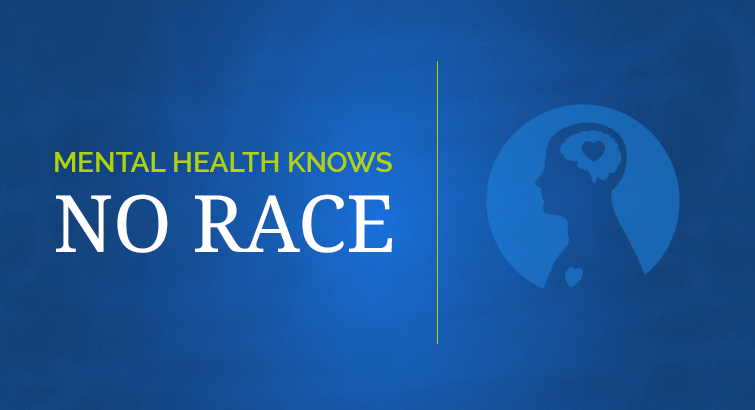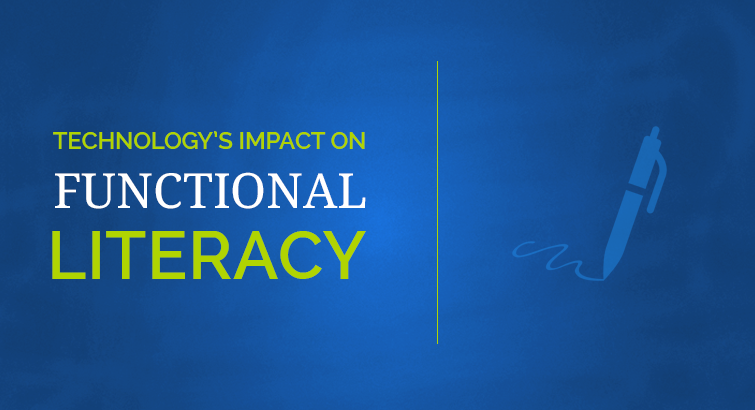|
As some of you already know, Heal Guyana has recently launched an Anti-Racism Project where many of its organisation's members (myself included) came together in an effort to foster education among ourselves and the citizenry on our ethnic issues, as a bold step toward healing our country. During the key address, it was mentioned that many do not fully understand ‘what racism is’, let alone, knowing what to do about it when it manifests itself within our homes and society. This realization caused me to think about racism in regards to my field; just how much it can affect mental health. Despite the fact that racism is one of our oldest and most serious concerns, the study of racial trauma in the field of psychology is fairly new. However, we do know that exposure to racism does have a detrimental effect on our entire well-being. It can cause issues ranging from low self-esteem to mental illnesses such as depression, anxiety and even suicidal thoughts and behaviors. I have many clients who have also turned to aggression, violence, isolation and substance abuse due to racism. Sharon Lalljee-Richard, the Founder and Director of Heal Guyana, explained the various facets of racism and how it permeates our society during one of the project's activities, earlier this month. I wanted to share some of her views with you (from the standpoint of mental health), so that you may benefit from a collective perspective on two key issues affecting Guyana and by extension, all of us. For the purposes of clarity, Sharon’s views will appear in ‘blue’. “When we think of racism in Guyana, we tend to see it through a narrow lens: Prejudice, discrimination or antagonism directed against someone of a different race. This view is not incorrect but it is, somewhat, incomplete. You see, in order for any of us to positively affect change when it comes to racism, we must challenge ourselves to understand the issue at a deeper level. By realizing the foundation through which racism was born, we can challenge this foundation at its core, viewing the world and ourselves, beyond the shadows of its imposed limitations. By remaining cognizant of the various manifestations of racism, we will be able to sensibly intervene when we see it playing out in the lives of others, as well as our own. By acknowledging the forces that perpetuate race-hate and deciding not to subscribe to them, we will invariably free our hearts and minds from the emotional cycles that imprison us, keeping racism alive in our society to this day. We cannot beat such a complex challenge unless we fully understand how to outmatch it, strategically. To do so will also call for lots of patience, tons of determination, endless dedication and the courage to look at every naysayer in the eye and answer, “the right thing is worth fighting for and I will not stop until this generation and the next inherits a race-free Guyana because of what I stood for!” Personal perception is vital with regards to mental health. Our moods, thoughts and emotions begin and end with us. Many people need validation from others but having good mental health means cultivating positive self-awareness, as well as a realistic view of your personal strengths and weaknesses. This factor is greatly affected in those who are exposed to racism. Many of us tend to believe what others say about us or those like us. Our self-esteem is greatly lowered when we feel judged and ridiculed by the things we cannot change, e.g., the color of our skin. The key to curbing the issue is realizing when we are being subjected to these negative influences or inflicting these feelings upon others. We must always remember that it is much easier to go down to someone’s level, rather than pull them up to higher ground. We must lift each other up! When we become aware, it gives us a great feeling of empowerment and completely diminishes the possibility of hopelessness; on how to stop the pain and harmful cycles caused by racism. Sharon continues: “Think of history, culture and identity as the lens, through which, we perceive everything. History shaped the course of our past which has led us here. We see each other as Indigenous or descendants of Africa, India, Europe and Asia etc. which seems innocent enough but right away – that begins to quietly compromise the neutrality of our perspectives regarding how we see each other. Culture and the preservation of it are wonderful – but only when we embrace all cultures. What tends to happen at an individual level is that we embrace only one culture and we compare that one against others; judging as we go along. Many of us identify as one race. Then we set out ‘other-ing’ ever other race besides our own. The mixed-race people are often the only ones who are left confused at this point. History, culture and identity, as you can see, are the foundations of our racial challenges. They are inescapable unless we begin to see each other beyond the confines of our differences toward our similarities. What are the common things that make us, Guyanese?” Now, let’s talk about the manifestations of racism in the broadest sense. It is really important that we understand that racism plays out both internally and externally. In other words, we probably shouldn’t be policing others and their racist bad-behavior, without equally checking ourselves and holding our inner-most thoughts to a higher standard every day. From within, racism manifests itself in the forms of bias, privilege and submission to the oppression created by a racist environment or culture. Racial Bias is most noticeable when we ‘suffer’ because others treat us or a particular racial group, differently, from how they would treat other races. Do we quietly sabotage persons of a certain hair texture and complexion so that they never succeed? Do we hold silent beliefs that chastise one race while celebrating another? These are examples of racial bias and as individuals, we must fight against the tendency to buy into these patterns. Most of us are often very discreet about expressing these sentiments because we know it may not be viewed with tolerance by others. But as soon as we are in a space we consider private or where we are among like-minded people, our racial biases begin to flourish; permeating the clean air with prejudice, hate and misguided stereotypes about others.” It is hard to accept that we play a role in the diminishing in our own self-worth. We know that if we have a certain view of others, we have an underlying fear that others equally critic us. Having good mental health does not simply mean living without a diagnosis but rather, the ability to have healthy views, relationships, and to make a worthwhile contribution to society. This kind of racism has effects on both those perpetrating and being victims to it. It increases substance use and abuse, along with violence such as assaults, homicides and suicides within an entire community. It brings out hopelessness which we are so used to seeing that it almost goes unnoticed. “What about external manifestations? How can we detect these within our midst? We are all familiar with Interpersonal racism as we read the callus and cowardly statements coming from online trolls and others who may, from time to time, be outwardly abusive or condescending toward those of a particular ethnic group. Institutional racism is the policies and practices within and across institutions that, intentionally or not, produce outcomes that chronically favor one racial group over another. There are many instances of this quietly happening (for years) within our ministries, employment sectors and schools. Structural racism is in its infancy in Guyana but I have seen indications of it making its way into the mainstream with certain groups making declarations which will create a system of public policies, institutional practices and cultural representations that work in various ways to reinforce racial inequality. If allowed to take root, our social, economic and political systems will be further condemned to the influence of privilege, inequality; and our racial divide shall deepen.” I believe the biggest problem we face is that we assume that race comes with a moral defect. We believe that people act in certain ways or have certain values due to the color of their skin. In Guyana, race is the focus of the discussion on everything – violence, crime, substance abuse and even suicide. A famous philosopher, John Locke, coined the term ‘Tabula Rasa’ which means blank slate. It is a term that expresses the view that people are born not good or bad and without any predetermined rules of how or what they will process. This means that everything, including racism, is learned behaviors - one which, as Sharon said, can be stopped in its tracks. She finished with: “The objectives of Heal Guyana's Anti-racism Project are simple. We want to significantly reduce and eventually eradicate all manifestations of racism and ethnic tensions in Guyana. We want to deepen public understanding of the various forms of discrimination and give peaceful, actionable ways of combating these scenarios. We want to cultivate a greater sense of tolerance and respect for diversity among all Guyanese, across all socio-economic and political lines.”
0 Comments
Technology without a doubt has made our lives easier. We can now keep in touch with friends who are half-way around the world, get to-the-second scores of our favorite football matches, set reminders to pick up some fruits from the market on our way home and so much more. Technology has without a doubt made life’s complexities easier to handle. But it has enabled us to do more while understanding less of the finer details of what it is we are doing. It has also exposed how vulnerable we can be in our offline life. For those of us who grew up in the age of technological expansion (from the mid-90s), we have been fortunate to be able to adapt and evolve with the advances. It was easy for us to be able to watch, learn and adapt, as we no longer need to sit at a desktop computer with dial-up internet to do our research for homework or an assignment. We could now just pick up our phones and obtain information at the touch of buttons. However, there is a generation of teenagers and young adults who were born into this age of technology, where a smartphone camera snapped pictures of them the day they were born and using a computer or tablet is second nature to them. We really have to start examining whether smartphones, tablets, laptops and Google are doing more harm than good to the mental capacities of Guyana’s youth. As information becomes readily available in our palms and where libraries are becoming obsolete, our young adults do not benefit from a more intensive research process and it is easy for them to slip into the growing ‘cut and paste’ phenomenon. Our young adults and teenagers are now so dependent on technology, that it has started to affect their literacy skills, as cutting and pasting information found on Google and Wikipedia for an assignment, SBA or report does not reinforce any of the language skills learnt throughout their formal education. UNESCO reported Guyana’s literacy rate to be 88.5% in 2015 which was up from 85% in 2009. But does this rate truly reflect the level of functional literacy of our youth so dependent on auto-correct? Auto-correct, after all, does not discriminate among “there”, “their” and “they’re” if the user does not know which is the correct term to be used. Inglis and Aers (2008, p.32) note: ‘It is the ability to read and write which makes a person ‘literate’, with varying degrees of fluency.’ The National Literacy Trust, however, includes reference to speaking and listening in its definition of literacy: ‘We believe literacy is the ability to read, write, speak and listen well. A literate person is able to communicate effectively with others and to understand written information.’ As UNESCO reports Guyana’s literacy rate rising, so too has the global level of literacy risen. However, the issue of functional illiteracy now arises, perhaps in part due to technology. Functional illiteracy is a term used to describe reading and writing skills that are inadequate to cope with the demands of everyday life. In Guyana, this seems to be a reality of many of our young people, as they are losing the ability to read and write at an appropriate level. As Whatsapp, Facebook and Instagram become more popular with Guyanese youth, a dangerous infiltration of ‘internet’ language ensues in their everyday life. It never ceases to astonish my colleagues and I when we see students use internet slang in official emails and communication and worse yet, in reports and assignments submitted for grading and even in tests. In an English-speaking country, where over 90% of the student population attending the only National University are locals who grow up speaking and writing English, many programmes at the University of Guyana still require English and/or some written and oral communication courses to be done, especially within the first two years of joining the University. This trend is not likely to curtail, as we find more and more these days our young adults just do not come prepared with the requisite functional English literacy skills. Often times, one or two university-level English courses still prove to be insufficient training for students who have to pursue final year projects which require a written thesis and an oral presentation. Project supervisors often complain they spend more time correcting grammar and sentence construction rather than reviewing the technical aspects of the project, as thesis drafts are so poorly written and put together. Parents will have to try to encourage our young ones to take a break from smartphones and tablets every now and then to do some physical or sport activity, or even to read a book (not an e-book). Dr. Wendy A. Suzuki, a Professor of Neural Science and Psychology in the Center for Neural Science at New York University, has done considerable work on how physical activity and exercise can be used to improve learning, memory and higher cognitive abilities in humans; and may even offer protection for the brain against neurodegenerative diseases like Alzheimer's. Technology is now a part of our everyday lives, but moderation in this critical stage of brain development may be the key to a successful wholesome offline life. As Guyana prepares to embark on a new chapter in its history, it is especially important that our youth are not left behind as we begin to witness an influx of expatriates with special skills needed for our new oil and gas economy. Yes, we need to keep up with technological advances but not to the detriment of our functional literacy and social skills. If we indeed wish to see our own thrive, we need to ensure the basics are not neglected in pursuit of ‘keeping up with the times’. Reference: Inglis, F. and Aers, L. (2008) Key Concepts in Education, London, Sage
|
About Us:Heal Guyana is a registered, not-for-profit organisation which functions as a civil society platform that focuses on empowering Guyanese and influencing citizens toward positive behavior change. Disclaimer:The views expressed herein are those of the Author; they do not necessarily reflect the views of Heal Guyana or its Executives. |






